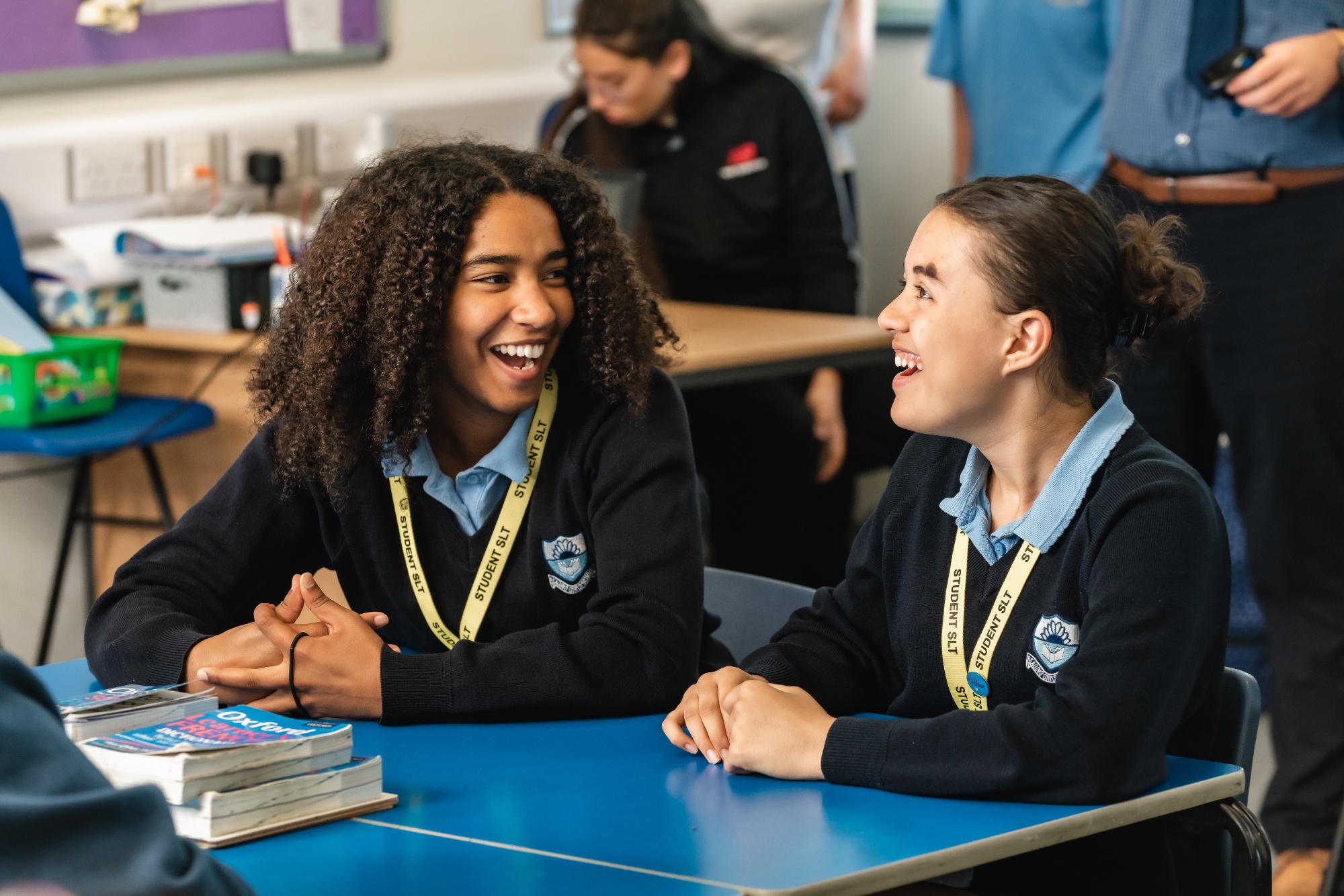History
 Subject leader: Ms Emily Troy
Subject leader: Ms Emily Troy
We aim for our students to become critical thinkers, who are able to recognise and understand the complexity of the historical world, and by extension, the world around them. Students should understand that the past is constructed and contested and should be able to form an opinion on this. A chronological framework of history built around key substantive concepts should enable them to contextualise any new knowledge they acquire. Students should be able to use these historical skills to become analytical citizens and flexible thinkers, able to apply these historical skills in different contexts.
By the end of KS3, students should
- Know and understand the history of Britain as a coherent, chronological narrative, from the earliest times to the present day.
- Know how people’s lives have shaped this nation and how Britain has influenced and been influenced by the wider world.
- Know and understand significant aspects of the history of the wider world: the nature of past civilisations; the expansion and dissolution of empires; characteristic features of past non-European societies; achievements and follies of mankind.
By the end of KS4, students should
- Have developed and extended their knowledge and understanding of specified key events, periods and societies in local, British, and wider world history; and of the wide diversity of human experience.
- Have developed their understanding of the interconnectivity of events, times and places across history.
Content
Year 7 Topics
- Migration to Britain, the Black Death, the English Civil War, the Islamic Empire and the British Empire.
Year 8 Topics:
- Benin Empire, the Transatlantic Slave Trade, the Industrial Revolution, Women’s Suffrage (women getting the vote), World War One, World War Two and the Holocaust.
Assessment
There is a very robust assessment programme in place for Key Stage 3. Pupils complete an assessed piece of work once a half-term. Assessments are marked and awarded a level. Pupils to reflect upon and use a boost task to improve their skills for the next assessment.
Once a year, pupils will complete a full assessment which will test their understanding of all the topics covered over the course of the full year.
Homework
Homework is set once a fortnight. Pupils and parents can access this from home through Edulink. Pupils will also record that homework has been set and the due date in their planners. For each topic, students complete three homeworks, including:
- Researching wider facts about the topic.
- A reading task about the topic.
- Independent research on a woman related to the topic.
How Parents and Carers Can Support
- Encourage your child to ask teachers for help if there are any difficulties.
- Check that homework is being done.
- Help your child understand keywords.
- Check spellings.
- Help your child research topics when needed.
- Help prepare revision resources and tests to check understanding.
- Encourage the use of any additional resources for information, for example the library, the Internet etc.
- Encourage your child to attend any after school revision.
Additional Support Available/Useful Links
Year 7 (All Folens)
Invasion, Plague and Murder – Britain 1066-1485 (ISBN 9781850083443)
Renaissance, Revolution and Reformation – Britain 1485-1750 (ISBN 9781850083450)
Year 8 (All Folens)
Industry, Reform and Empire – Britain 1750-1900 (ISBN 9781850083467)
Technology, War and Identities – A World Study After 1900 (ISBN 9781850083474)
Websites
http://www.bbc.co.uk/bitesize/
https://www.youtube.com/channel/UC4KN50fal7f45fx2DqG7ttg
Reading List
- Bawden, Nina: Carrie’s War
- Branford, Henrietta: Fire, Bed and Bone
- Edwards, Dorothy: A Strong and Willing Girl
- Morpurgo, Michael: War Horse
- Paulsen, Gary: Nightjohn
- Toksvig, Sandi: Hitler’s Canary
Year 9, 10 and 11
Exam Board and syllabus code
Edexcel GCSE History
Content
History GCSE will involve 3 papers that pupils will sit at the end of the course in Year 11. There is no coursework or controlled assessment for GCSE History.
Paper 1: Medicine in Britain 1250 - present
- Section A – Period study on the medical treatment on the Western Front
Paper 2: The Norman Conquest. The American West
Paper 3: Weimar and Nazi Germany
Assessment
Pupils will be assessed on an ongoing basis using GCSE style questions. They will be more formally assessed using mock exams at regular points throughout the GCSE process.
Homework
Once every two weeks students should complete:
- One independent Learning task from the sheet in their book.
Once every short term
- The reading task which will be issued by the teacher.
How Parents and Carers Can Support
- Encourage your child to ask teachers for help if there are any difficulties.
- Check that homework is being done.
- Help your child understand key words.
- Check spellings.
- Help your child research topics when needed.
- Help prepare revision resources and tests to check understanding.
- Encourage the use of any additional resources for information, for example the library, the Internet etc
Additional Support Available/Useful Links
- http://www.bbc.co.uk/bitesize/
- GCSEPod- https://members.gcsepod.com/login/
- Edexcel GCSE (9-1) History Medicine through time, c1250-present (ISBN:9781292127378)
- Edexcel GCSE (9-1) History Anglo-Saxon and Norman England, c1060–1088 (ISBN:9781292127231)
- Edexcel GCSE (9-1) History: The American West, c1835–c1895 (ISBN: 9781292127309)
- Edexcel GCSE (9-1) History: Weimar and Nazi Germany, 1918–1939 (ISBN: 9781292127347)
